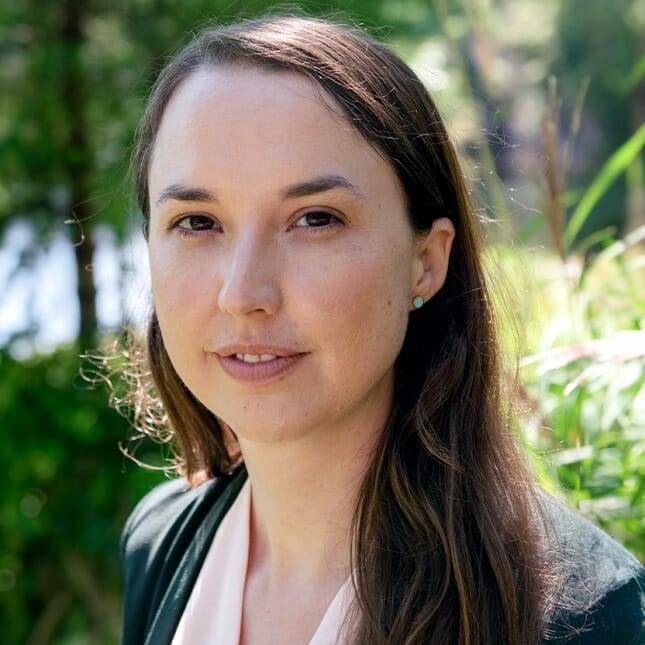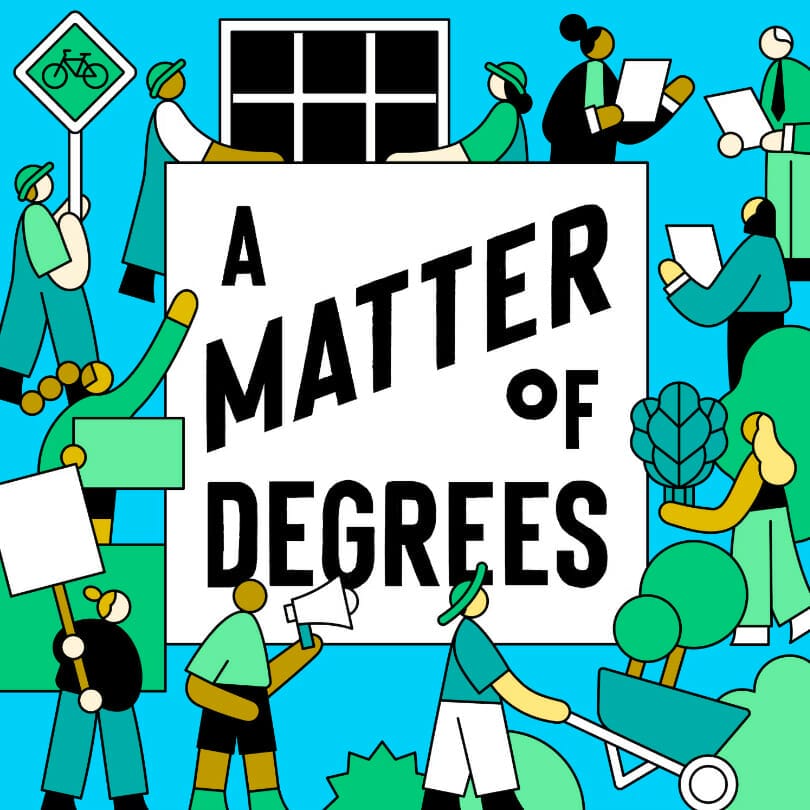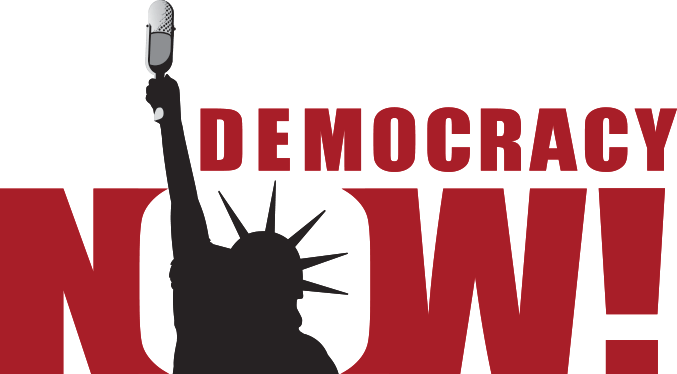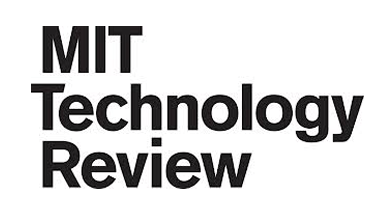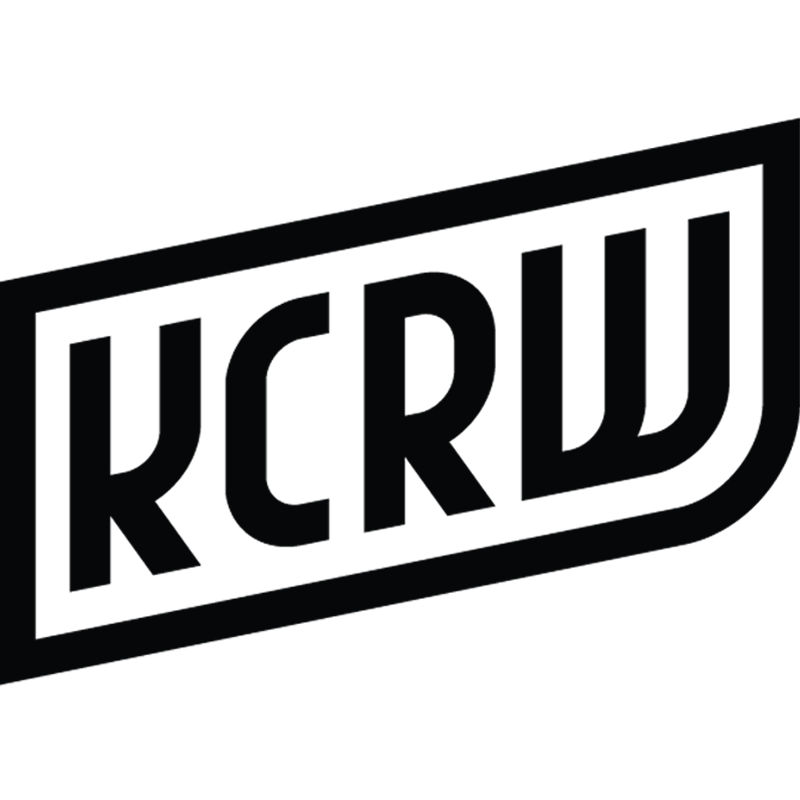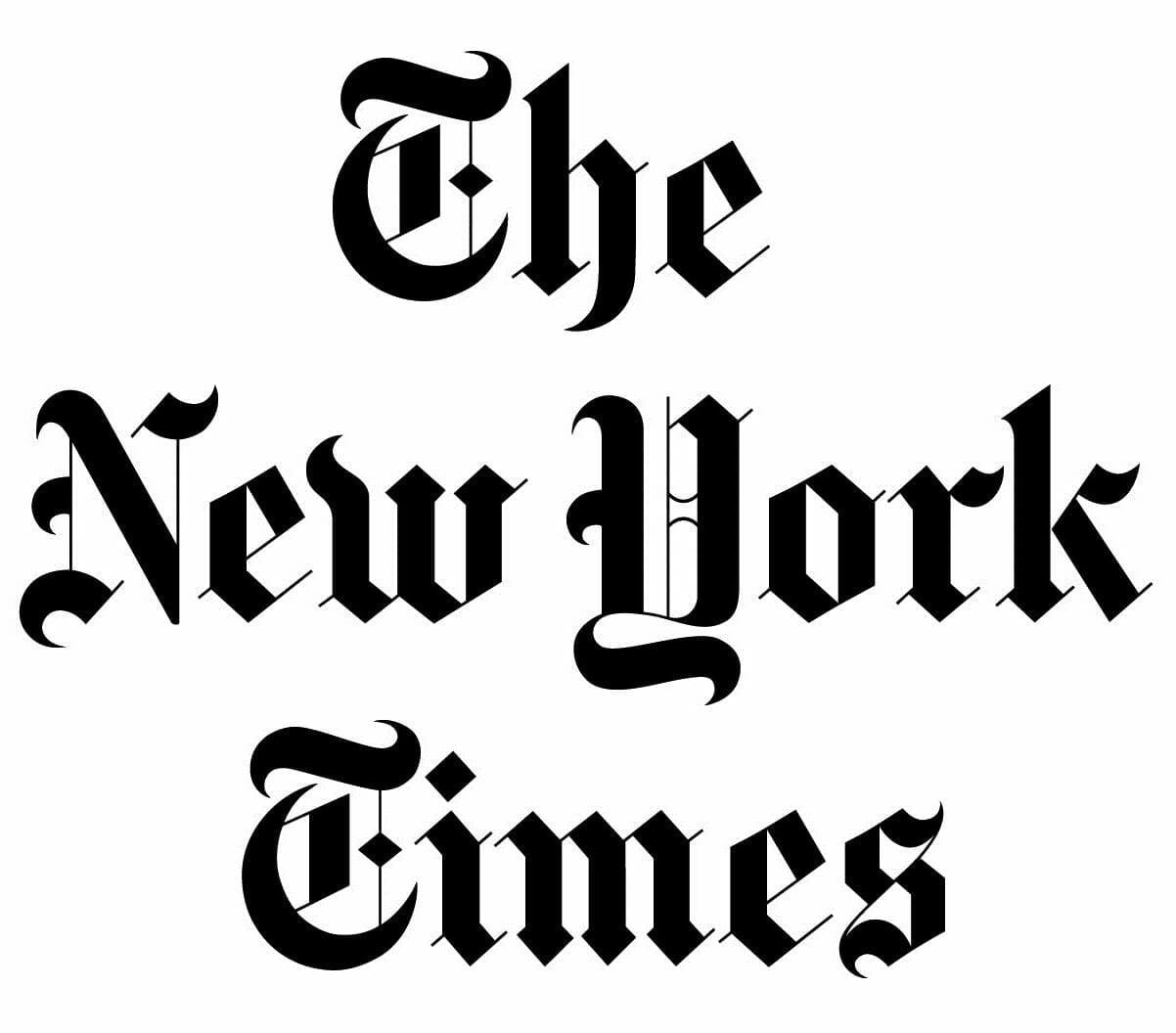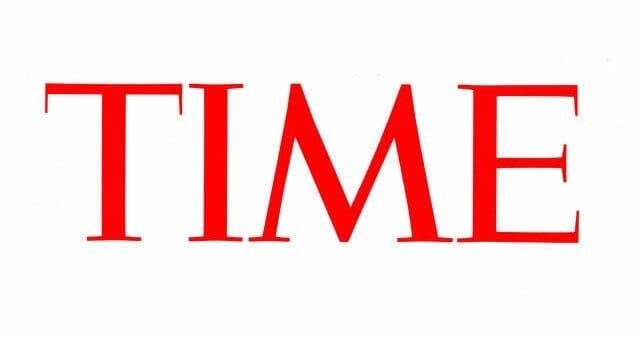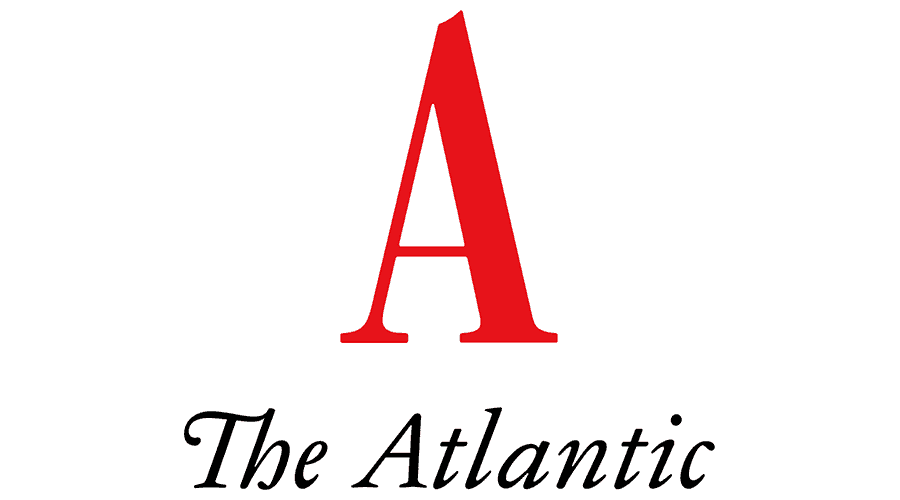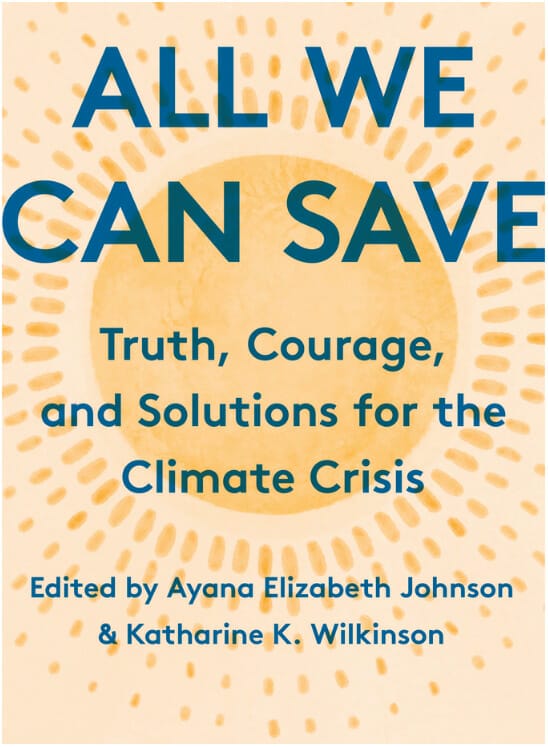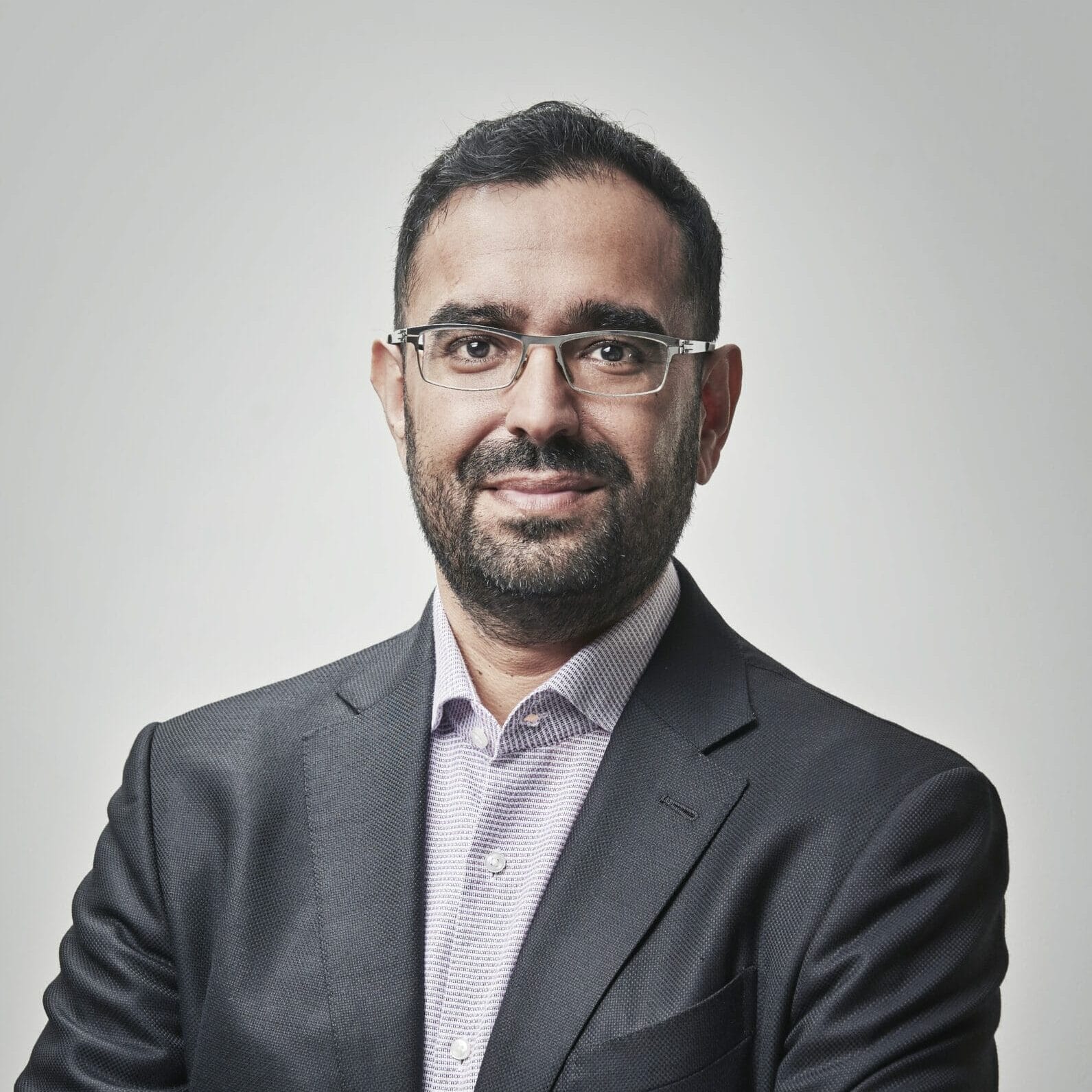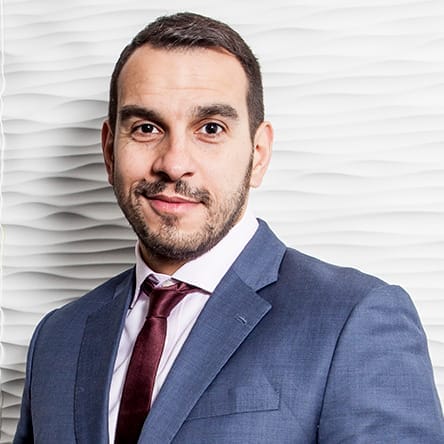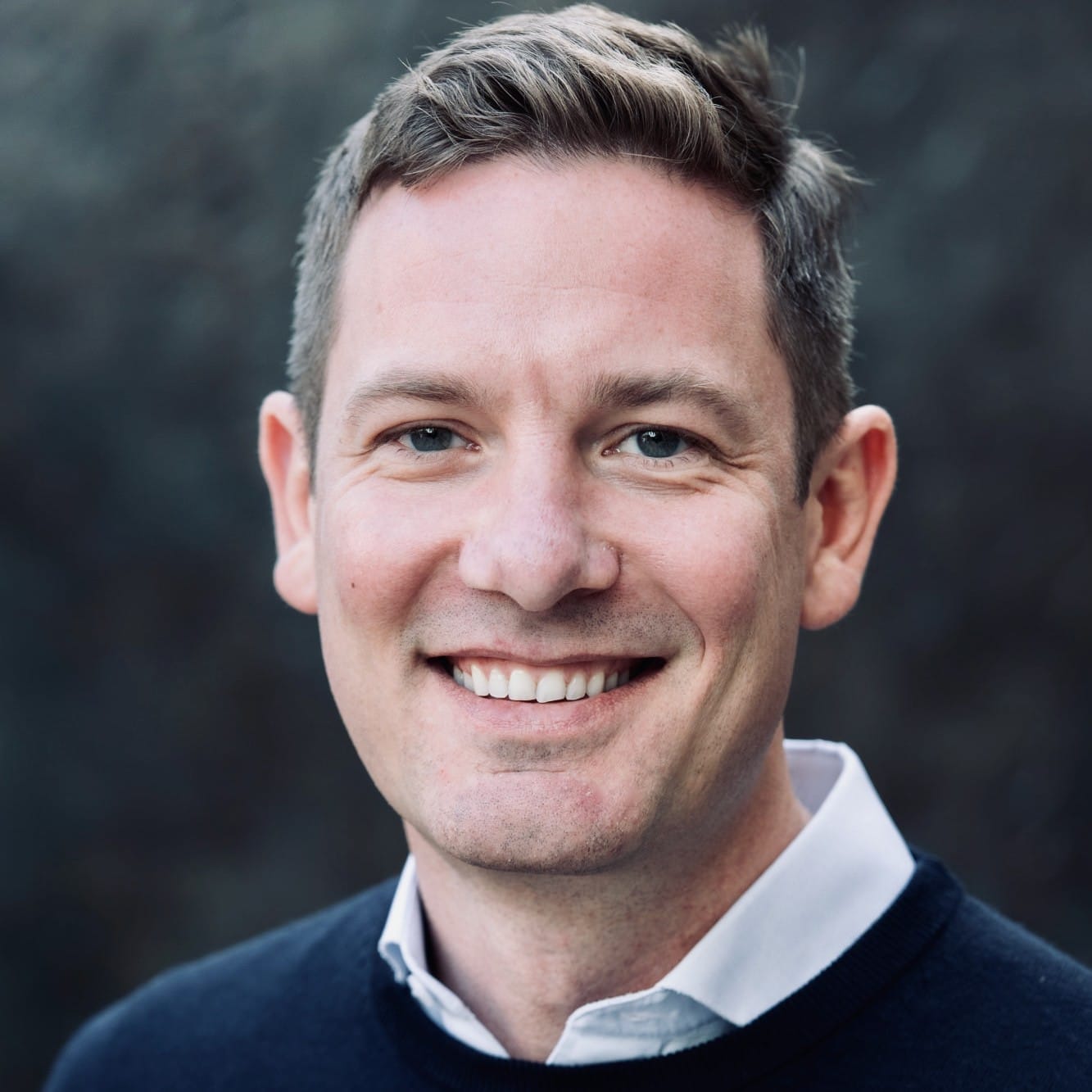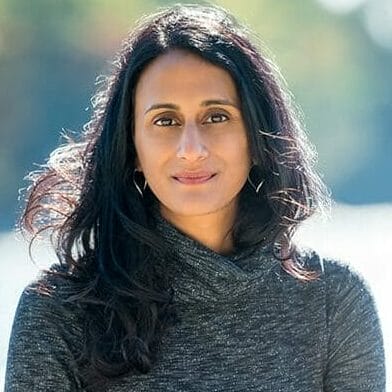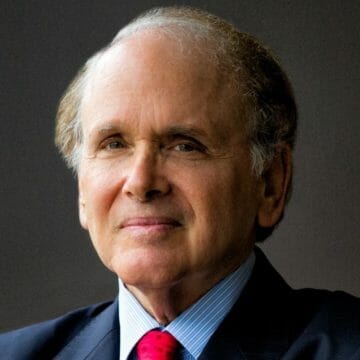Videos
Learn More About Leah Stokes
Most organizational leaders tasked with achieving zero carbon emissions by 2050 need guidance on strategies and best practices so they can successfully meet their goals.
With nearly two decades of experience working on climate and energy policy, researcher and policy strategist Leah Stokes, Ph.D. studies and teaches about energy solutions that alleviate dependency on fossil fuels. Stokes is the Anton Vonk Associate Professor of Environmental Politics in the Department of Political Science and affiliated with the Bren School of Environmental Science & Management at University of California, Santa Barbara (UCSB). Her deep research shows electrification can cut 75% of carbon emissions while saving lives, strengthening the economy, increasing grid resilience, and reducing the burden of costly weather-related disasters.
“Right now, the grid primarily runs on fossil fuels – oil, gas, coal. We can create a cleaner energy system by deploying affordable, proven technologies to create clean power and electrify our economy,” says Stokes, who holds four degrees including a doctorate in public policy from MIT and a master’s in environmental science and policy from Columbia University. “If you expand the power grid and add zero-emission electricity sources, the grid goes from 40% clean today to 100% clean in the coming decades. When we pair this with electric appliances, we can cut three-quarters of current carbon pollution. And those electric technologies only get cleaner alongside the grid: they are appreciating assets from a climate perspective. The old model of slowly weaning off fossil fuels is not the way to go. The new paradigm is to fully decarbonize through clean power and electrification, what we call deep decarbonization.”
Named to the 2022 TIME100 Next and Business Insider 2022 Climate Action 30 lists and a 2023-2024 fellow at the Harvard University Radcliffe Institute, Stokes regularly provides advice to policymakers at the federal and state levels and has given testimony on clean energy and electrification to the U.S. Congress, as well as states and cities. Her book “Short Circuiting Policy” (2020) shows how utility companies promoted climate change denial and pushed back against clean energy initiatives. It was named the Best Energy Book of 2020 by the American Energy Society, listed among the top five climate books in 2020 by The New York Times, and received three awards from the American Political Science Association. At Radcliffe, Stokes is writing a book documenting how climate policy rose to the top of the agenda, became a priority in Congress, and eventually became law through the Inflation Reduction Act.
Stokes serves as an advisor to Rewiring America, which promotes electrification and is drafting legislation that, if passed, would offer grants or tax credits to help with the costs of electrifying homes. Her work is particularly relevant to leaders overseeing residential or commercial new construction, as well as technology companies, auto industry manufacturers producing electric vehicles, and professionals in the renewables and retrofitting industries. In fact, Stokes says, transitioning to clean energy opens the door to all kinds of new markets and jobs.
Health Benefits & Cost Savings
In her testimony to Congress, Stokes shared recent research that reveals significant health hazards associated with burning fossil fuels, particularly emissions from gas appliances in homes. She emphasizes a transition to clean energy is not just about cleaning up the environment but also preserving our health. The transition is also affordable — electricity is less impacted by market volatility and brings stability and cost savings to households through lower energy bills. Lastly, electrification and a rapidly greening grid will help the U.S. achieve true energy independence.
A passionate advocate for clean energy, Stokes is committed to getting everyone on board, including individuals, communities, institutions and policy makers, in order to widen the circle of action. Stokes reaches audiences around the world as co-host of the top-rated climate podcast, “A Matter of Degrees,” which has more than 700,000 downloads, and through her Twitter account, which is a go-to source for analysis on climate policy. She is also regularly interviewed by major media outlets such as CNN, The New York Times and The Washington Post, and her articles are regularly published by top journals and publications including The New York Times.
In the influential essay she contributed to The New York Times bestselling anthology “All We Can Save: Truth, Courage and Solutions for the Climate Crisis” (One World, 2020), she makes a poetic case for everyone to do their part.
“When you decide to become part of changing our energy system, you can start small, beginning with yourself, then widen the circle to your community, then work toward the widest circle, which is policy change,” says Stokes. “Each one of us can chip away at the laws that keep us stuck in our current energy system. Working together, we can shape it into a new form. Business leaders in particular have a huge stake in our future and their influence is critical to changing policy. My job is to help them understand why deep decarbonization makes sense, then show them how they can play a role in making change. My door is always open.”
# # #
Dr. Leah Stokes’ academic work is regularly published in top journals including the American Political Science Review, American Journal of Political Science, British Journal of Political Science, Nature Energy, Energy Policy and Environmental Science & Technology. She has also published articles in The New York Times, The Washington Post, The Los Angeles Times, The Guardian, The Atlantic and The Boston Globe, and she is frequently quoted in the media. She is a Senior Policy Counsel at Rewiring America and a 2020 Grist 50 Fixer. Prior to academia, she worked at the Parliament of Canada and Resources for the Future. She holds four degrees, including a doctorate in public policy from MIT and a master’s in Environmental Science and Policy from Columbia University.
Leah Stokes is available to advise your organization via virtual and in-person consulting meetings, interactive workshops and customized keynotes through the exclusive representation of Stern Speakers & Advisors, a division of Stern Strategy Group®.
The Urgent Need for Business and Government to Expedite a Federal Climate Action Policy
We’ve already warmed the planet over 1°C above pre-industrial levels. To limit further warming and climate impacts, scientists are clear that we need to cut emissions in half by 2030. To meet these targets, we must make progress on clean electricity and electrification, says renowned climate expert, policy strategist and UC Santa Barbara Professor Leah Stokes. In the U.S., that means we need to expand the grid by a factor of two and grow renewables by a factor of eight – a daunting pace of growth – in order to power our homes, businesses, cars and trucks, and parts of heavy industry. In this talk, Stokes explains why piecemeal actions from states and cities is not enough, and why we need a national policy to meet these targets, including large scale investment from the federal government and private industry. She also explains why cleaning up the electricity system is the first linchpin in globally tackling the climate crisis.
What Can I Do? A Guide to Influencing Climate Action
When people hear about the climate crisis, they often ask the same question: “What can I do?” They often look to make changes in their own lives. While that is a valuable training ground, changing your own behavior is not as powerful as changing the institutions around you, says renowned climate expert, policy strategist and UC Santa Barbara Professor Leah Stokes. In this talk she outlines a framework for taking climate action – starting with yourself, then moving outwards into community, and finally toward impacting policy change. Participants are empowered with the tools they need to chip away at laws and corporate policies so they can play a part in cutting pollution, with the goal of addressing the climate crisis.
The Latest Progress on U.S. Climate and Clean Energy Policy
Although the United States is behind on climate policy, there is progress being made from the federal government on down, says renowned climate expert, policy strategist and UC Santa Barbara Professor Leah Stokes, who has spent nearly two decades working on climate and energy policy. In this talk, she outlines advances being made at the federal level, including key proposed and existing incentives such as tax credits for wind, solar, clean buildings, storage and transmission. She also explains how states and local governments have taken the lead on clean energy and climate policy, passing laws like Clean Electricity Standards and establishing building codes that do not allow fossil gas in new buildings. Because Stokes is a foremost authority on climate research and policy, and a tireless activist on the front lines of change, participants receive up-to-the-minute information on the current state of play.

Short Circuiting Policy: Interest Groups and the Battle Over Clean Energy and Climate Policy in the American States
(Oxford University Press, September 2020)

Prevalence and Predictors of Wind Energy Opposition in North America
(Proceedings of the National Academy of Sciences, September 2023)

The American Electric Utility Industry’s Role in Promoting Climate Denial, Doubt, and Delay
(Environmental Research Letters, September 2022)

The Effect Of Public Safety Power Shut-Offs On Climate Change Attitudes And Behavioural Intentions
(Nature Energy, July 2022)

Combining Climate, Economic, and Social Policy Builds Public Support for Climate Action in the Us
(Environmental Research Letters, May 2020)
"That was just wonderful. What a treat to have you be part of this event. Thank you for your energy, insights, candor, and even sharing some deeply personal anecdotes. Our audience was really engaged and inspired, as was the whole Watershed team."
“Always. Read. Leah Stokes.”
“I’ve found Leah Stokes a very helpful, educational follow for tracking various candidates’ climate plans and climate policy more broadly.”… “Her work [on the federal Clean Electricity Standard] has convinced me this is the big policy that all oars should be rowing towards.”
Reviews for “Short Circuiting Policy”
“Stokes has written a highly readable and compelling book that will be of interest to environmental policy scholars and the general public alike”
“This is a book of the very first importance, a stunningly good piece of investigation that lays bare the answer to what may be the world’s most important mystery: why are we moving so slowly to address the greatest crisis the planet has ever faced? It should be read-and memorized-by everyone who deals with energy policy in any way, shape, or form.”
“With Washington gridlocked or worse, advocates for action on climate change have looked to the states for leadership. In this deeply researched and sobering analysis, Leah Stokes shows why these hopes must be combined with vigilance and tenacity. Even where states have managed to introduce innovative reforms, Stokes shows, deeply entrenched and resourceful fossil fuel interests can often regain the upper hand.”
“With US national politics deadlocked under right-wing dominance, crucial battles over clean energy are playing out in the states. In this brilliant new book, Leah Stokes spells out exactly how and why entrenched interests can take advantage of weak, ambiguous laws to achieve costly delays and hobble infant clean energy sources. All citizens fighting for effective responses to global warming should heed the lessons in this book-and scholars studying policy battles in many other realms have much to learn from it as well.”
